I know this is an old topic. But I have tried all the solutions from most answers. I have uploaded the App 10 times in 2 days and kept on having the same notification from Google Play Support.

When I have had the notification sent from Google, I was using the built in Hostname Verifier of okhttp3. But after having multiple failures I have updated all the dependencies and added a hostname verifier. Still the update have been rejected. Here is my ApiClient class.
public class APIClient {
private static Retrofit retrofit = null;
public static ApiInterface getAPIClient() {
if (retrofit == null) {
retrofit = new Retrofit
.Builder()
.baseUrl(BuildConfig.BASE_URL)
.client(getHttpClient())
.addCallAdapterFactory(RxJava2CallAdapterFactory.create())
.addConverterFactory(GsonConverterFactory.create())
.build();
}
return retrofit.create(ApiInterface.class);
}
private static OkHttpClient getHttpClient() {
HttpLoggingInterceptor interceptor = new HttpLoggingInterceptor();
interceptor.setLevel(HttpLoggingInterceptor.Level.BODY);
OkHttpClient.Builder okHttpClientBuilder = new OkHttpClient.Builder();
okHttpClientBuilder.cache(new Cache(MvpApplication.getInstance().getCacheDir(), 10 * 1024 * 1024)) // 10 MB
.connectTimeout(10, TimeUnit.MINUTES)
.addNetworkInterceptor(new AddHeaderInterceptor())
.addNetworkInterceptor(new StethoInterceptor())
.readTimeout(10, TimeUnit.MINUTES)
.writeTimeout(10, TimeUnit.MINUTES)
.addInterceptor(interceptor);
okHttpClientBuilder.hostnameVerifier((hostname, session) -> {
Certificate[] certs;
try {
certs = session.getPeerCertificates();
} catch (SSLException e) {
return false;
}
X509Certificate x509 = (X509Certificate) certs[0];
// We can be case-insensitive when comparing the host we used to
// establish the socket to the hostname in the certificate.
String hostName = hostname.trim().toLowerCase(Locale.ENGLISH);
// Verify the first CN provided. Other CNs are ignored. Firefox, wget,
// curl, and Sun Java work this way.
String firstCn = getFirstCn(x509);
System.out.println(TAG + ": firstCn: "+firstCn);
if (matches(hostName, firstCn)) {
return true;
}
for (String cn : getDNSSubjectAlts(x509)) {
if (matches(hostName, cn)) {
return true;
}
}
return false;
});
return okHttpClientBuilder.build();
}
private static String getFirstCn(X509Certificate cert) {
String subjectPrincipal = cert.getSubjectX500Principal().toString();
for (String token : subjectPrincipal.split(",")) {
int x = token.indexOf("CN=");
if (x >= 0) {
return token.substring(x + 3);
}
}
return null;
}
private static class AddHeaderInterceptor implements Interceptor {
@Override
public Response intercept(@NonNull Chain chain) throws IOException {
Request.Builder builder = chain.request().newBuilder();
builder.addHeader("X-Requested-With", "XMLHttpRequest");
builder.addHeader("Authorization",
SharedHelper.getKey(MvpApplication.getInstance(), "access_token"));
Log.d("TTT access_token", SharedHelper.getKey(MvpApplication.getInstance(), "access_token"));
return chain.proceed(builder.build());
}
}
Can someone suggest anyways I can check for possible vulnerability before posting a release on Play Store or any way to bypass this issue?
Following are the implementation of HostnameVerifier inside the project.
I have got 17 warning in Prelaunch report. Some of them are due to okhttp. Here is one of the warnings.
StrictMode policy violation: android.os.strictmode.NonSdkApiUsedViolation: Lcom/android/org/conscrypt/OpenSSLSocketImpl;->setHostname(Ljava/lang/String;)V
at android.os.StrictMode.lambda$static$1(StrictMode.java:428)
at android.os.-$$Lambda$StrictMode$lu9ekkHJ2HMz0jd3F8K8MnhenxQ.accept(Unknown Source:2)
at java.lang.Class.getDeclaredMethodInternal(Native Method)
at java.lang.Class.getPublicMethodRecursive(Class.java:2075)
at java.lang.Class.getMethod(Class.java:2063)
at java.lang.Class.getMethod(Class.java:1690)
at okhttp3.internal.platform.android.AndroidSocketAdapter.<init>(AndroidSocketAdapter.kt:36)
at okhttp3.internal.platform.android.StandardAndroidSocketAdapter.<init>(StandardAndroidSocketAdapter.kt:34)
at okhttp3.internal.platform.android.StandardAndroidSocketAdapter$Companion.buildIfSupported(StandardAndroidSocketAdapter.kt:59)
at okhttp3.internal.platform.android.StandardAndroidSocketAdapter$Companion.buildIfSupported$default(StandardAndroidSocketAdapter.kt:52)
at okhttp3.internal.platform.AndroidPlatform.<init>(AndroidPlatform.kt:47)
at okhttp3.internal.platform.AndroidPlatform$Companion.buildIfSupported(AndroidPlatform.kt:160)
at okhttp3.internal.platform.Platform$Companion.findAndroidPlatform(Platform.kt:219)
at okhttp3.internal.platform.Platform$Companion.findPlatform(Platform.kt:212)
at okhttp3.internal.platform.Platform$Companion.access$findPlatform(Platform.kt:169)
at okhttp3.internal.platform.Platform.<clinit>(Platform.kt:170)
at okhttp3.OkHttpClient.<init>(OkHttpClient.kt:237)
at okhttp3.OkHttpClient$Builder.build(OkHttpClient.kt:1069)
at com.shadigipay.shadrivedriver.data.network.APIClient.getHttpClient(APIClient.java:172)
at com.shadigipay.shadrivedriver.data.network.APIClient.getAPIClient(APIClient.java:56)
at com.shadigipay.shadrivedriver.ui.activity.splash.SplashPresenter.checkVersion(SplashPresenter.java:33)
at com.shadigipay.shadrivedriver.ui.activity.splash.SplashActivity.checkVersion(SplashActivity.java:98)
at com.shadigipay.shadrivedriver.ui.activity.splash.SplashActivity.onResume(SplashActivity.java:205)
at android.app.Instrumentation.callActivityOnResume(Instrumentation.java:1412)
at androidx.test.runner.MonitoringInstrumentation.callActivityOnResume(MonitoringInstrumentation.java:1)
at android.app.Activity.performResume(Activity.java:7300)
at android.app.ActivityThread.performResumeActivity(ActivityThread.java:3814)
at android.app.ActivityThread.handleResumeActivity(ActivityThread.java:3854)
at android.app.servertransaction.ResumeActivityItem.execute(ResumeActivityItem.java:51)
at android.app.servertransaction.TransactionExecutor.executeLifecycleState(TransactionExecutor.java:145)
at android.app.servertransaction.TransactionExecutor.execute(TransactionExecutor.java:70)
at android.app.ActivityThread$H.handleMessage(ActivityThread.java:1816)
at android.os.Handler.dispatchMessage(Handler.java:106)
at android.os.Looper.loop(Looper.java:193)
at android.app.ActivityThread.main(ActivityThread.java:6718)
at java.lang.reflect.Method.invoke(Native Method)
at com.android.internal.os.RuntimeInit$MethodAndArgsCaller.run(RuntimeInit.java:493)
at com.android.internal.os.ZygoteInit.main(ZygoteInit.java:858)
I am using okhttp 4.9.0 and retrofit 2.9.0

